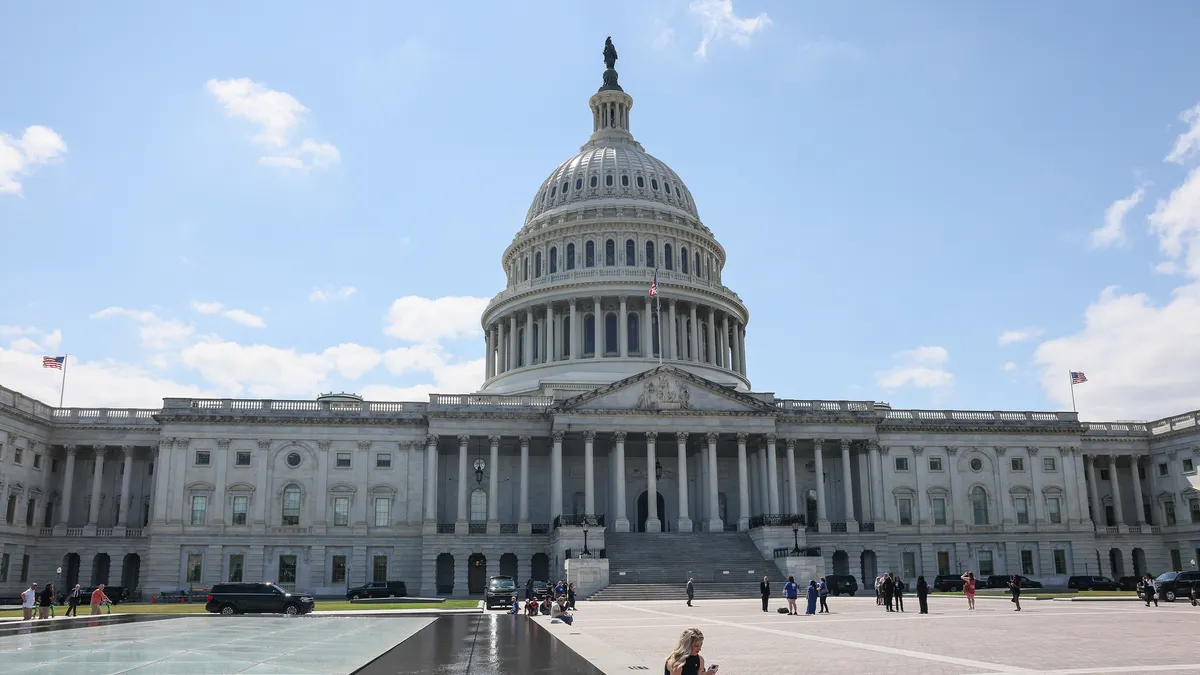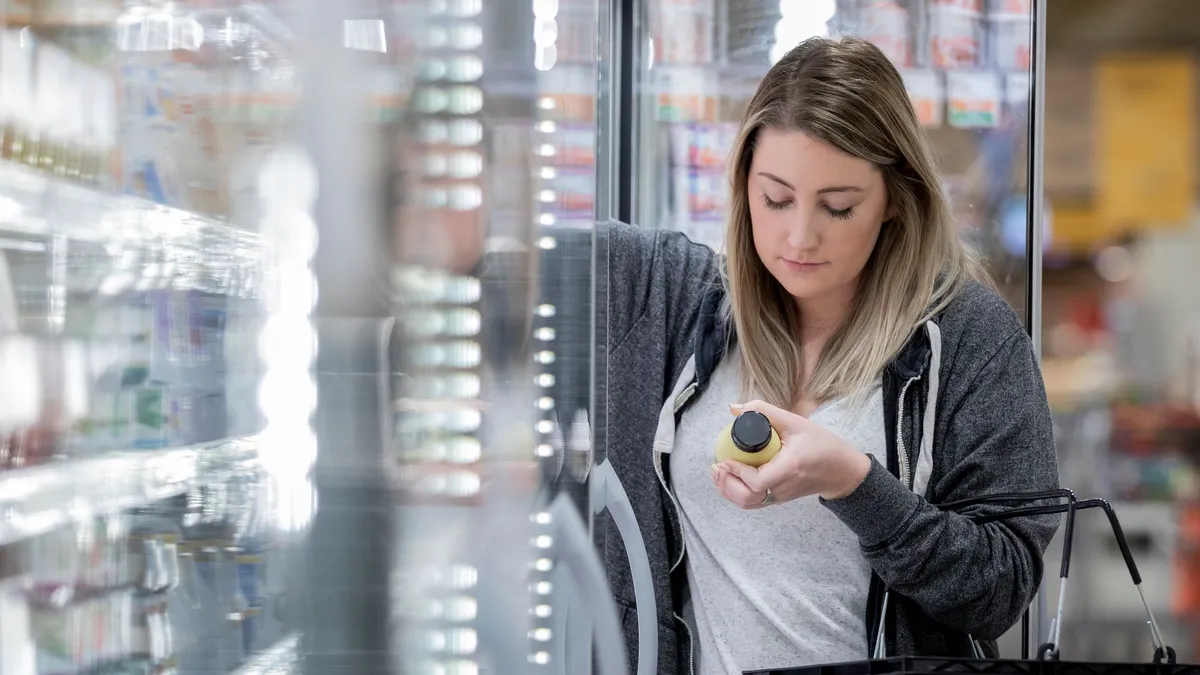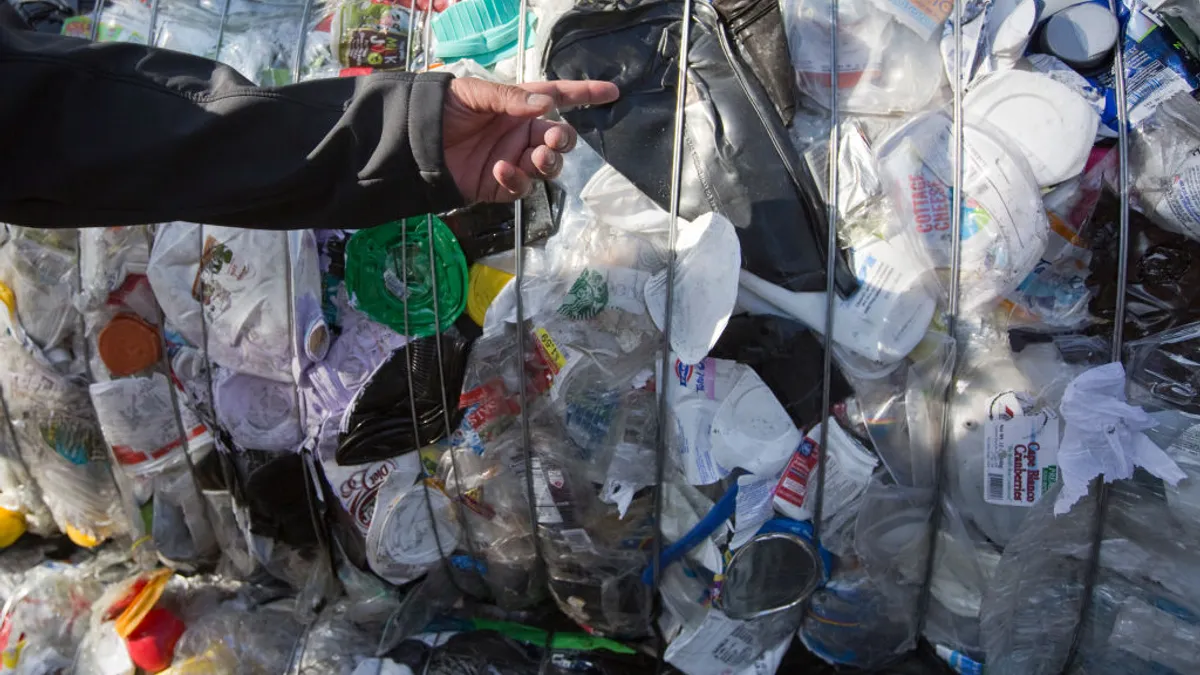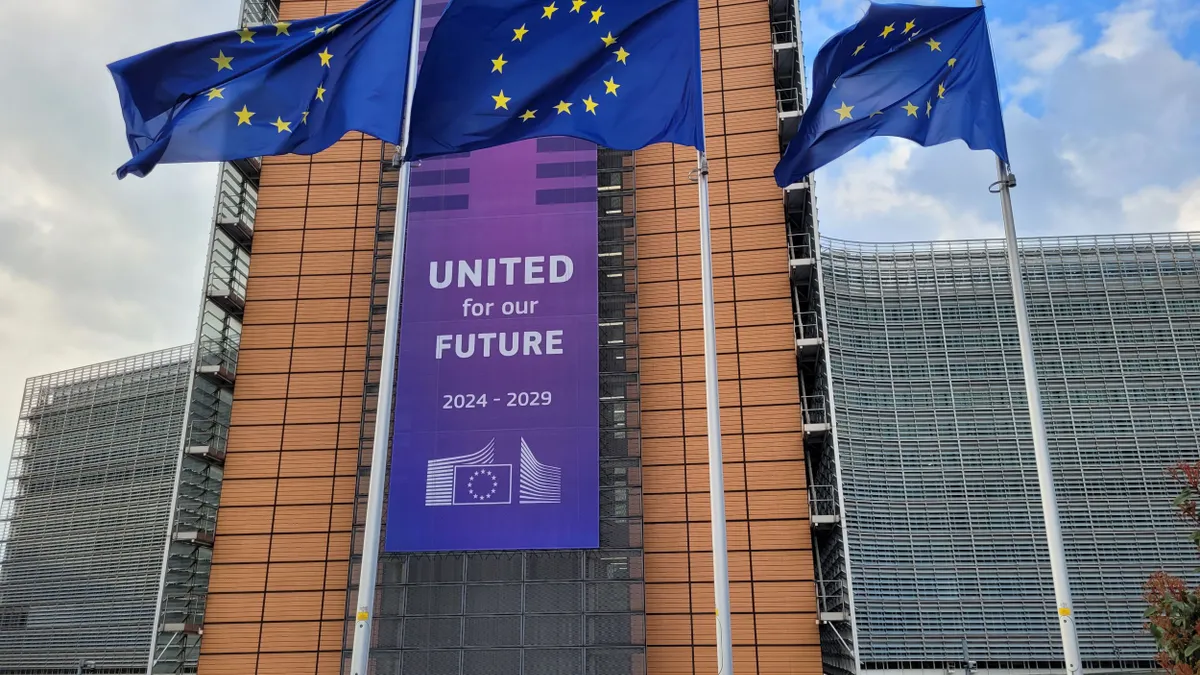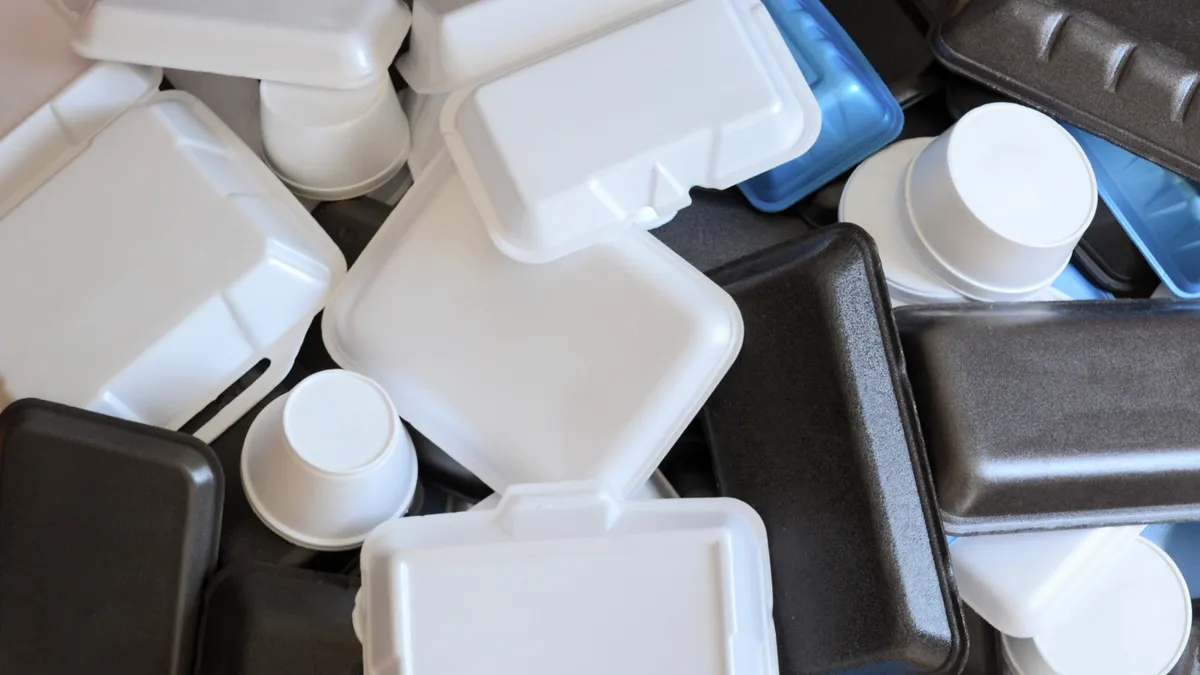The next six months could deliver consequential progress for packaging policy, ranging from state laws to a global plastics agreement.
The first half of 2024 in policy news brought a new state extended producer responsibility law, a contested climate disclosures rule from U.S. financial regulators poised to impact publicly traded packaging companies, a final rule from the General Services Administration supporting — but not requiring — the phase-out of single-use plastics procurement, tariff changes on metal materials and paper bags, and more.
With U.S. elections on the horizon, these are just some of the notable proposals and negotiations on our radar as legislative sessions end and the year winds down, from statehouses to the United Nations.
What other policy issues are you engaging with in the second half of 2024? Let us know at [email protected].
United States
Packaging companies and brands are still watching for any word from the Federal Trade Commission on potential updates to the Green Guides, federal guidance on environmental marketing claims, such as when something can be labeled “recyclable.”
Last year, the FTC engaged with the public through open comments and hearings, but the agency has been quiet this year. A spokesperson recently said the agency had no public updates and remained in the process of developing draft guides and digesting feedback.
In Congress, it remains to be seen whether a pair of longstanding recycling bills that are stagnant in the House could move. Both the Recycling Infrastructure and Accessibility Act and the Recycling and Composting Accountability Act were passed by the Senate in March; they were previously introduced in 2022 and passed the Senate but not the House.
The bills would establish a recycling infrastructure pilot to increase access and collect more data on recycling and composting, respectively. The bills have gotten vocal support this year from Ameripen, the American Forest & Paper Association, the Plastics Industry Association, the Can Manufacturers Institute, Ball and Tetra Pak, among others.
There’s also discussion on Capitol Hill of federal truth in labeling policy, including a bill being drafted by Oregon Sen. Jeff Merkley, which could have the potential to supersede a notable law in California.
States with legislatures still in session, including in California, Massachusetts and New Jersey, are also considering bills related to prohibiting plastic bags, EPR exploration and adoption, rightsizing shipping boxes and more.
Other states continue to work to implement previously passed EPR laws. Earlier this year, Colorado approved a recycling framework following its needs assessment, and California has been working through draft regulations and materials lists.
Circular Action Alliance, the producer responsibility organization in California, Colorado and Oregon, had a July 1 deadline to join but is still urging producers to register. Oregon’s Department of Environmental Quality was expected to respond to CAA’s program plan by July 31, ahead of recycling program changes kicking off in July 2025. Regulators in Maine are also in the rulemaking process and are accepting comments on packaging material exemption requests until Aug. 1.
International
In Canada, the Environment and Climate Change department announced a federal plastics registry in April, a tool it says will “compel plastic producers and other companies across the plastics value chain to help monitor and track plastic from the time it is produced up to its end of life.” Users will be able to access the registry’s IT system in the second half of 2024, ahead of phase one reporting beginning in September the following year.
Following European elections in June, the EU Parliament began a new term this week. In the EU this year, co-legislators reached a provisional agreement on the Packaging and Packaging Waste Regulation that was approved by Parliament and underwent a lawyer-linguists review. In the second half of this year, the newly elected EU Parliament and Council are expected to endorse the text, according to a recent summary from Europen. A vote is expected in September or October.
On the global scale, a fifth and what’s supposed to be a final session focused on negotiating a global plastics agreement through the United Nations is scheduled to take place from Nov. 25 to Dec. 1 in Korea. This follows a session in Canada in April, after which environmental NGOs expressed concerns over slow progress and not enough focus on curbing plastic production.
“We depart INC-4 with a streamlined draft text that will serve as the starting point for further negotiation at the next INC session in Busan, Republic of Korea this December, which we find critical for negotiations to stay on track to conclude at INC-5,” the U.S. State Department said in a May update.
Intersessional work is also focusing on advancing sections of draft text regarding chemicals of concern and financial mechanisms to enable treaty implementation.



